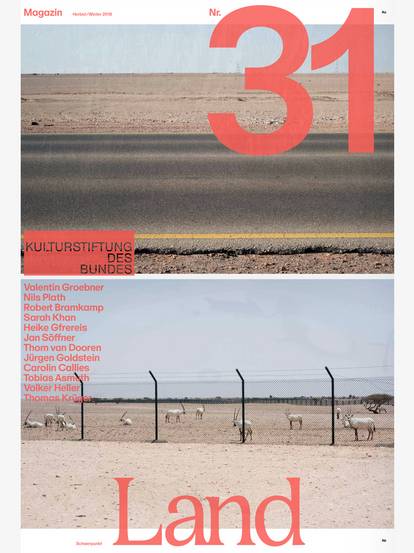Prof. Tim Jackson: It’s failed us for all sorts of reasons. For one, this massive explosion of material wealth since the industrialization and in particular after World War II is true only for a proportion of the global population. It’s becoming more true for a wider population, for instance in China and India, but there’s still two billion people in Africa and parts of South East Asia and Latin America, who are chronically undernourished, living on less than a couple of dollars a day, still living – at best – subsistence lifestyles. Economic growth didn’t deliver the poorest out of poverty. It has failed to create a prosperity that is equally shared. It has created global divisions, differentials in income, differentials in access to resources, differentials in living quality that are morally unacceptable. And the idea that this growth would allow wealth to trickle down, like “a rising tide that lifts all boats”, as John F. Kennedy phrased it in the 1960s, this idea of social progress as deliverance from abject poverty has failed. We always have a variety of futures – for example, one in which an increasingly small proportion of the world’s population continues to live at a very high level of material wealth, and another in which we think about wealth differently and think about sharing the material resources to create a common wealth, rather than one to which only a few people have access.
Roman Brinzanik: Couldn’t global economic growth achieve that in the future if we just gave it more time?
Jackson: If you think about what would be needed to achieve the necessary economic growth, you reach unrealistic levels of material consumption and environmental impact. Our current economic model of being wealthy, of progress in global terms has been one in which everybody participates in this wonderful material wealth. But if you do the math, it just doesn’t work out. There is no realistic scenario in which we can maintain the kind of growth that we have in an expanding form for a population of nine billion people by 2050 without contravening the limits of our environment and the global material resources. That’s the impossibility theorem that motivates what I’m trying to do in my research. So coming back to your previous question, growth has also failed us in environmental terms.
Hülswitt: So why do we need growth then?
Jackson: The system needing growth and us needing growth are closely related things and are often completely conflated. We need growth because growth gives us good stuff – it gives us more food, healthier lives, better technologies and more excitement. Our economic system needs growth, because social instabilities start rising if we don’t grow the economy. Shrinkage is unstable, at least under present conditions.
Hülswitt: Why do these instabilities arise?
Jackson: The principle dynamic revolves around growth and employment. Politicians will tell you over and over again that growth equals jobs. But it’s a really bizarre thing to say, because growth both creates and destroys jobs. Through technological progress and through the structure of a growth-based society, we have continual incentives to increase labor productivity, the amount of work that each worker achieves in a given year. This means that next year you need fewer people to do the work that you did this year to create the same economic output. And if your economy doesn’t grow and create new jobs then people are out of work. The incentive to continually chase labor productivity is exactly why you have to grow the economy if you want to maintain employment. If you don’t have increasing labor productivity, you don’t need growth in order to maintain jobs. I would argue that this is the key long-term dynamic increasing our dependency on growth. But there are others, of course. In particular, debt-based financial systems tend to become unstable without growth. Whether you’re a government, a company or a household, if you’re income isn’t growing, paying back interest on your debts imposes a direct hit on your spending power and perhaps also on your well-being.
Redefining prosperity
Hülswitt: Will we have to give away some of our wealth to achieve a sustainable economy?
Jackson: We have to question growth in rich countries and we have to start by redefining what we mean by wealth and prosperity. It’s already true. And it’s our ideas of progress that become the most important things to look at and to identify.
Brinzanik: What could real prosperity and real progress look like today?
Jackson: What are the things that we want to protect for our vision of progress? I characterize prosperity in terms of our ability to lead a decent life. I draw in particular on Amartya Sen’s and Martha Nussbaum’s idea of the “capabilities to flourish”. And I focus on identifying what “flourishing” means. It seems to me there are some material things that we want to protect. For example, the ability to live a healthy life, good nutrition for sure, decent living conditions and shelter. It’s nonsense to talk about prosperity without having those material things which clearly have to be part of any notion of progress. But beyond that, it’s about social and psychological progress. Beyond the purely material sense of flourishing, what people are trying to do, the important tasks they are engaged in, are psychological and social in nature. Even the ubiquity and attractiveness of the iPhone as a commodity, for example, is largely psychological and social. Its benefits are about communication, about excitement, about producing both social commitment and social connection. This is a vision of progress that’s been around since at least the time of Aristotle. The conditions for a good life are those in which it is possible to create and maintain our sense of identity, to live with a sense of meaning and purpose, to stimulate our sense of the social aspect of life, our sense of connection to other people and to our family and friends and to a sense of the continuity of human beings across the generations. In short, the ability to participate freely in the life of society. These conditions comprise the deep, underlying fabric of progress.
Towards a sustainable economy
Brinzanik: What are the consequences of that vision of prosperity for our rich societies with our high material standard of living? What do we have to change?
Jackson: I think we have to change the social logic. For this we have to ask hard questions about what it is that we want and how we achieve it, how we can deliver it in an equal way. That calls for a public space where it’s possible to have a conversation about what things matter and where they matter. That’s stage one, saying, yes, with economic growth we get healthier lives, we get better education and we get better and sexier technologies – but in return we also get this fast turnover and clutter that we’d like to get rid of. Can we separate those two things? Actually it’s never been true that more is always better. We have a kind of surfeit of stuff and people are beginning to think: “I want less stuff in my life, I want to de-clutter. The quality of my life is being impaired by too much material stuff. And instead of working all my life so that I can buy this stuff which promises so much to me, but somehow fails to deliver and then just clutters up my house and occupies so much of my time, maybe I can have a better quality of life where I spend more time with my friends and family and community and, therefore, don’t have to work so hard.” We’ve created a consumer logic precisely because that’s what sustains the system. Politicians resist, more than anything else, the idea that it’s their job to change the social logic. But the reality is they’ve done it. In creating the institutional conditions for a growth-based economy, they’ve systematically encouraged a particular social logic, the logic of consumerism. Just look at the news coverage during the crisis of 2008. Politician after politician came out and encouraged people to spend and even created a moral duty to go out shopping because this is what would give us back economic stability. It doesn’t make sense to change that social logic while you still have economics based on consumption growth. But if you can create a type of economics which is no longer based on this unsustainable growth, then you can develop a social logic which reflects who human beings are. What are ways to do that? For one, we have to systematically understand how we created that social logic of consumerism and dismantle it, and the other is through measuring and investing in the things that would create capabilities for flourishing in less materialistic and more meaningful ways. So that’s my first recommendation: Change the social logic.
Brinzanik: What else is needed for creating a sustainable economy?
Jackson: Secondly, we need to establish the ecological limits, to identify the material and environmental constraints on the system. This is about having robust resource accounting, figuring out what our resource dependencies are, establishing what economic activity we can afford with various resource dependencies, and what we can’t afford. And what an equitable distribution of those resources might be in a growing world in which everybody has an equal right to a decent quality of life. So that’s number two: Establish the limits.
Hülswitt: What about economics itself?
Jackson: It’s clear that the economic system, the existing economic structure is seriously broken even in its own terms. It has no mechanism for stability except for continually expanding consumption growth. And in attempting to do that, it has generated instabilities that almost brought the whole system crashing to its knees. So my third strand is: Fix the economics. Here, I mean economics both as a social science and a societal institution. The ecological economist Hermann Daly made the case for a steady-state economy within the capacities of the ecosystems. This pioneering work provides a solid foundation for fixing the economics. In fact, even economists like John Stuart Mill and John Meynard Keynes wrote about exactly that transition from an economy that was founded around creating the material conditions that you need to live well towards one in which that task was fulfilled and we no longer had to worry about economic growth in order to achieve these conditions. Right now, we don’t have a macroeconomics that doesn’t rely on continued consumption growth for its stability. Of course, I could also mention here that mainstream economics insists – mistakenly I think – on the existence of atomistic agents, rationally pursuing individual self-interest. But in fact, the psychological reality is that individual identity is constructed through our relationships to other people. And so the modeling of mainstream economics doesn’t work properly, the welfare maximization doesn’t come out right, the externalities in social and environmental terms aren’t factored in properly. Some have put forward the idea of an ecological self, a self that suffers when ecology suffers. But even if you don’t go that far, it still remains true that economics has created a sort of social trap in which individual self-interest results in the destruction of social well-being and undermines our ability to create a more social sense of who we are. Of course, in fixing the economics you also want to do some basic things like fixing the national accounts. It is now very well rehearsed that the GDP just doesn’t provide a good economic measure of what well-being is and what progress means. So these are my recommendations: Change the social logic, establish the limits and fix the economics.
Technological decoupling
Brinzanik: Many people believe it will be possible to decouple economic output from negative environmental effects and depletion of material resources by scientific and technological progress, for instance, by ever increasing efficiency.
Jackson: It’s true, we do things more and more efficiently, but we also do more of them. And that’s the scale effect of growth which always tends to outweigh the increasing efficiencies. For instance, carbon intensity, the carbon content of each dollar, has declined on average by 0.7 % per year since 1990 and at the same time global carbon emissions increased by about 40 %. So as the economy expands you end up having a bigger environmental impact, and if you think of it expanding to nine billion people in 2050 all aspiring to Western lifestyles, you reach quite heroic, completely unrealistic assumptions about how much efficiency you would need to achieve, how much technological progress you would need to make. Let’s do a scenario exercise in which an expected nine billion people in the middle of this century all aspire to Western incomes. Let’s assume that these incomes are all growing at two percent per year, so there is also still growth even in the developed nations. And let’s assume as well that we still want to meet our carbon targets – that is, reductions in global carbon emissions of around 80 % by 2050 in order to meet the IPCC’s 450 ppm stabilization target for keeping average global temperature increase below 2°C. It turns out, in this simple thought experiment, that you actually have a huge task to de-carbonize economic activity. You need a 130-fold reduction in carbon intensity in the space of the next 40 years! And even after that, of course, you’ve still got to make that de-carbonization faster and faster because the economy is still growing.
Brinzanik: So do you think that we are mistaken in relying on technological solutions like comprehensive earth systems management, drastically increasing efficiencies, switching to renewable resources or creating closed-resource loops?
Jackson: On the contrary, resource efficiency, renewable energy, reductions in material throughput, and perhaps ecological enhancement and carbon capture and storage are vital – with or without growth. We need a massive technological shift. But I think we’re asking for levels of technological improvement that are unrealistic, at least in an economic system in which we haven’t changed the underlying architecture. Technologically speaking, I don’t think decoupling is absolutely impossible. But I think it’s impossible in our present economic and social system. That was where I started my career really, by thinking that those renewable energy technologies are all there and could be implemented in the not-so-distant future. What’s standing in the way is the institutional structure, the economic incentives and to some extent the organization of our lives, the social architecture. The myth of technological decoupling is the claim that it will necessarily achieve ecological targets. That’s wishful, magical thinking.
Brinzanik: What should our technological strategy look like beyond being green?
Jackson: Technology existed since the Stone Age and, in broad terms, it is human adaptation of the material environment in ways that should contribute to well-being. And so, of course we need technology. And likewise, we need innovation. We’ve done immense things in terms of technology, particularly through improved healthcare. I mean for me personally, that’s as close to home as it gets. Because my son was born with a hole in his heart, which technology 50 years ago would not have picked up until it was probably too late. Now he’s had a small operation to sew a piece of Goretex, a fabric developed through largely military use, in his heart and he now has for all intents and purposes a normal heart and a normal life expectancy. So you know, tell me about the benefits of those kinds of advances and I’m all for it. For me, it sort of underlines the fact that we have immense capabilities to protect the things that really matter. And one of the balances that went wrong was the balance between innovation and conservation and tradition. And we’ve tended to stimulate innovation – technological innovation, in particular – for a variety of reasons. One is that it’s sexy and exciting, the other is that it has, in fact, been a huge vehicle for increasing labor productivities. But there are two problems with this. One is the pace with which it increases the resource throughput in society. And the other is the reliance it creates on the kit itself and the lack of resilience that it brings to society. For instance, schools are increasingly becoming dependent on IT in their teaching methods. They no longer have blackboards, but touchboards and the supporting kit behind them. We’ve become reliant on technologies that actually create a fragility in the future under anything but the most favorable conditions of economic growth. When investment starts to collapse, those are the systems that will no longer work. The barriers at train stations, the computers in classrooms, the reliance in the home on the ever-present, always-on technology, all of this stuff is creating a lack of resilience in society. So do we need technology? Yes. Do we need a technological strategy which prevents us from an over-reliance on brittle technologies, which we cannot afford to maintain? Absolutely. We have to think about the development of our education systems, our health systems, our transport system, our energy system and our domestic systems in ways which consider social resilience in the face of different kinds of futures.
Brinzanik: Don’t we need a certain amount of GDP growth to sustain our monetary system and service our existing debts? And what about funding the necessary investments into the expensive development and deployment of environmental and other technologies?
Jackson: As I’ve mentioned before, in the existing system, servicing your debt is difficult if your income isn’t growing. At the very least, it threatens to undermine the level of well-being you can afford. And at the moment we have a monetary system built extensively on debt, in which more than 90 % of the money created in the system is created directly from debt. There are very strong arguments here for reforming the monetary system, in particular for returning a degree of control of the money supply to the public sector, to government. And yes, the way investment works is important, too. It’s clear you need investments to generate returns to investors. But is it legitimate for those investors to claim 25 or 30 % returns in economies that grow, at best, by only two or three percent? I don’t believe it is. What we need instead is a concept of ecological investment that looks more to the long-term, that accepts lower, perhaps even zero rates of return, in exchange for achieving longer-term ecological and social goals. In fact, if we valued the future as much or even more than we value the present, we might even accept negative rates of return on our investments. Many ordinary people make that sort of decision every day. Parents invest time and money in their children, for instance, that makes no economic sense in the conventional way. It’s because they value their children’s future, sometimes even above their own.
Visions of the future
Brinzanik: The German philosopher Peter Sloterdijk wrote that one effect of the current environmental and climate crisis could be a new age of material minimalism, which he calls “ecological Puritanism”. Do you think that the second part of the 20th century was perhaps a hedonistic interlude which is now being followed by a return to modesty?
Jackson: My research group here at the University of Surrey has done a lot of work with people who intentionally engage in that material modesty. Voluntary simplicity, downshifting, sustainable lifestyles, and those kinds of initiatives either at community level or at household level are really interesting because they suggest a counter-culture. There is some fascinating evidence that people, who actually are living in that way, express measurably higher levels of well-being. But are the conditions such that it will emerge spontaneously in a widespread manner? My sense is, probably not, because the conditions are too harsh at the moment. What you find when you look at those initiatives is that people who try to engage in that counter-culture in a real way struggle continually against the structural conditions and institutional contexts that are imposed on them. But is it waiting there and is it something that when those conditions change, either forcibly or through social change, could emerge? Yes, I think so.
Hülswitt: Do you think it possible that there might be something like an eco-rebellion at some point in time, driven by impatience?
Jackson: By people, by impatience, yes. I think there are some conditions under which that could actually occur. With regard to what happened in Japan, we will see a real discomfort with nuclear technology and that will remove it from the picture as a backstop technology. This is about public perceptions and public reactions which are very difficult to control. And so that’s one circumstance which you could see stirring up a sense of eco-rebellion. It would have to combine with another oil shock which we might be seeing as a result of the events in Libya and elsewhere. And a fragility around the gas supplies coming from Eastern Europe, and possibly something environmental – though I think the environmental part might be the weakest element – could create the conditions for a sort of eco-rebellion. There are backlashes, and there are backlashes to the backlashes, hence it’s difficult to see how it’ll play out. But it would be a very interesting thing to happen.
Imagination
Brinzanik: What are the roles of utopian and dystopian thinking in shaping our future?
Jackson: I think that both have quite important roles to play. But neither of them is entirely straightforward. And in a sense, you want both of them simultaneously in order to navigate a variety of possible futures. I think that’s the task. They’re not ends for their own sake. They’re not things in which you should lose too much of yourself in imagining, but they are sort of guiding stars for charting a course across quite unknown territory.
Hülswitt: I’ve been reading Lady Chatterley’s Lover recently. It’s a love story, but it’s also about the love for nature and contains a very strong social critique. There is a scene in which Lady Chatterley drives to the next coal town, and she’s looking out the window, thinking: "The mud black with coal dust, the pavements wet and black. It was as if dismalness had soaked through and through everything." That was an intuition that D.H. Lawrence, the author, obviously had by looking at a landscape and at towns that were distorted by industrialization, that this distortion was totally wrong. Could intuition of such kind be a trustful guide, or rather not?
Jackson: Could we have done that differently, could we have achieved some of the benefits of technology without the huge disbenefits and enormous risks? And I suppose in a way Lawrence’s response to the coal towns in the 19th century, early 20th century, that intuitive response is perhaps useful as a guide. It’s a realization that our benefits come with huge costs. And there are masses of literature around that, people who have been critical of the path of development since the Industrial Revolution, and those who’ve held out for a different sense of what it means to be human. And to me that’s what literature does – it holds those possibilities for being human in different ways. And it explores what’s happening through what’s called social progress. And it asks very legitimate questions about whether that really is progress and what progress of the human heart ought to be. There are elements of that cultural, artistic response that we have to trust as being an insight into our condition.
Sustainability transformation
Brinzanik: Do you think that, in big historical terms, after the Neolithic and the Industrial Revolution we are seeing a transformation into a new era of sustainability?
Jackson: If we are to make a transition to a society with an ecological conscience, then that’s the scale of the revolution we need. Are we already seeing it at that scale or anything close to that scale? Probably not.

![[Translate to English:] Magazine 38](/fileadmin/_processed_/f/1/csm_Magazin38_Cover-Vorschau_921x1230_689f428dc3.jpg)
![[Translate to English:] Magazine 37](/fileadmin/_processed_/b/c/csm_Mag37_Cover-Vorschau_921x1230_b5129fdb2a.jpg)
![[Translate to English:] Magazine 36](/fileadmin/_processed_/2/a/csm_Cover_Magazin36__issuu_2f3cef97bb.jpg)





![[Translate to English:] Magazine 30](/fileadmin/_processed_/c/b/csm_magazin30_vorschau_9005f773d3.jpg)














